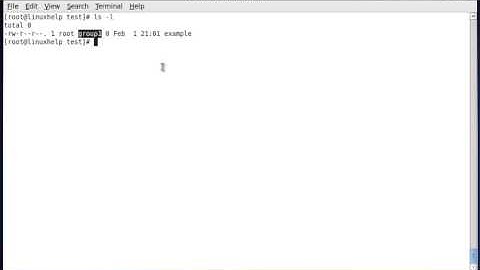How to revert chown command?
Solution 1
In short: no.
You'll need to restore from a backup. (Some backup tools might have options to only restore permission, others can list backed-up files with their permissions and you can use that to fix your system.)
If you don't have a backup, you'll need to fix all that manually.
Solution 2
If your distro is RPM based, you can restore ONLY files that installed by rpm packages.
To restore all package permissions:
rpm --setperms -a
To restore all package owner (user/group):
rpm --setugids -a
If -a doesn't run, you can execute a bash loop:
For permissions:
for x in $(rpm -qa); do rpm --setperms $x; done
For owner:
for x in $(rpm -qa); do rpm --setugids $x; done
Extracted from: http://www.sysadmit.com/2016/10/linux-restaurar-permisos-de-un-paquete.html
Solution 3
Only if you know the user and group ownership of every file and directory under your / directory.
Even then, you've already clobbered the ownership of critical system files that need to be owned by root, including the sudo command. You'd probably need to mount the hard drive on another system -- and be aware that the other system likely won't have the same UID and GID mappings as the one you just clobbered.
Make a copy of the entire hard drive if you can, then reinstall your operating system. Once you've done that, you can try copying files back to the newly wiped system and restoring their ownerships. You can probably assume (though not 100% reliably) that everything under /home/foo is owned by user foo, and that each mail spool file under /var/mail is owned by the appropriate user (if you have e-mail on the system). You can likely get away without restoring most files that aren't under /home, depending on what you've done with the system.
And then start cultivating a habit of double-checking any command you run under sudo before you hit Enter.
Solution 4
You can store the current versions and then parse that out to revert by using the -v option.
chown -R nobody:nobody -v /tmp/some_file > /tmp/chown.log
cat /tmp/chown.log
The contents would be:
changed ownership of `/tmp/some_file' from me:users to nobody:nobody
Using your favorite scripting language and regular expressions, you can execute the painful process of reverting them (if you must).
I'd strongly recommend not doing a recursive chown on / as you'll expose /etc/shadow or any other important file.
Solution 5
if the distro is rpm-based:
rpm -a --setperms
Related videos on Youtube
George Eracleous
Updated on September 18, 2022Comments
-
 George Eracleous over 1 year
George Eracleous over 1 yearIf I run:
sudo chown -R user:user /Can I revert it to what it was before I ran it?
-
 Admin over 8 yearsJust as a warning to others: The following command
Admin over 8 yearsJust as a warning to others: The following commandsudo chown -R user:user ..could have the same effect as the one mentioned here if you are one level below the root of the file system. Do not attempt something like this.
-
-
Keith Thompson over 11 yearsAfter
sudo chown -R user:user /, it's likely that the system is so badly hosed that you can't restore from a backup. -
 Mat over 11 yearsIf you can't recover the important parts of your user data in this scenario from your backup, your "backup" really isn't one. If you can't recover the whole OS, you should still be able to re-install the base and then restore from backup. Will very likely need a live CD or network boot in this case, but if your backup strategy can't recover from this, it's not really good enough.
Mat over 11 yearsIf you can't recover the important parts of your user data in this scenario from your backup, your "backup" really isn't one. If you can't recover the whole OS, you should still be able to re-install the base and then restore from backup. Will very likely need a live CD or network boot in this case, but if your backup strategy can't recover from this, it's not really good enough. -
Keith Thompson over 11 yearsMy earlier comment was probably unclear. A functioning system can be restored using the system itself. Once you've done the
chowndescribed, it's likely that you won't be able to do anything before installing the whole system from scratch; the system doesn't even have arootaccount, andsudowon't work. It's probably worth trying to boot to a single-user shell, but don't expect it to work. -
jw013 over 11 yearsThe root account isn't gone (it's still UID 0); it just doesn't own any files anymore, but root bypasses normal permission checks anyways. Whether
sudoor evensuwill continue to function when all its relevant files are owned byuseris a different matter (probably not because among other things the SUID bit on the exe will be gone).




